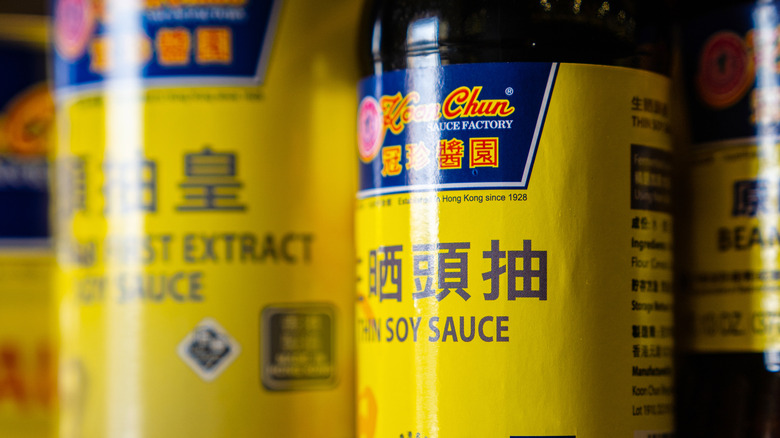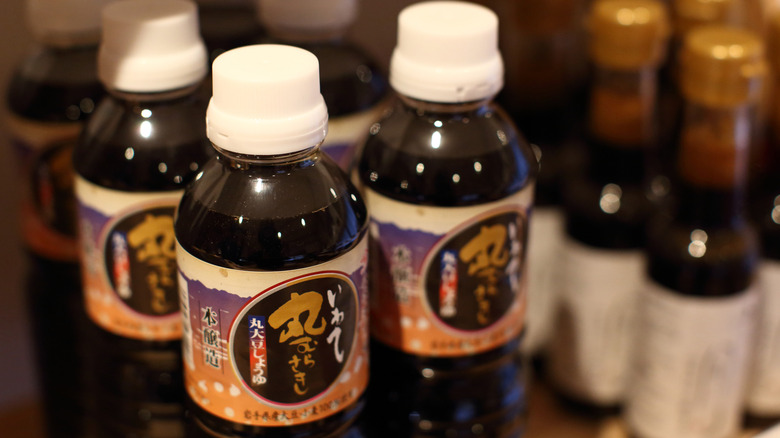Do You Have To Refrigerate Soy Sauce?
Fermented food is having a moment right now. From 2017 to 2019, kombucha sales skyrocketed from $1.7 million to over $12 million, per Market Watch. There are many different brands and types of kimchi available on the market, and that tub of miso paste has had a spot in our fridge for months now... maybe more? After all, who could ever get enough miso soup?
Soy sauce might not be the first thing that comes to mind when you hear the word "fermented," but the condiment certainly gets used more often in the kitchen than a lot of other fermented foods. According to a study by JeongAe Heo and Jeehyun Lee of the Department of Food Science and Nutrition, 44% of U.S. consumers use soy sauce every single week.
Even though fermented food is currently having a moment, soy sauce production dates back to the seventeenth century, reports household soy sauce name Kikkoman. Soy sauce, the brand says, is made from a mixture of soybeans, roasted grains, saltwater, and a mold called koji. Once combined, this mixture is called moromi, and it is transferred to a tank to ferment and become the soy sauce we shake onto our rice.
So, how long can we expect our soy sauce to be fresh? And does it need to be refrigerated to be meal-ready?
Fermentation takes care of soy sauce
The simple answer is no. Refrigerating your soy sauce is really a matter of preference.
One of the cool things about fermented foods like fish sauce is that they can be left at room temperature for some time without spoiling, per PureWow.
How does it work? Fermented foods are placed in an oxygen-free, salty environment, explains Revolution Fermentation, which encourages the growth of lactic-acid-creating bacteria. Lactic acid prevents harmful microorganisms from forming and also gives fermented foods like soy sauce their uniquely tangy taste.
At room temperature, unopened soy sauce has an indefinite shelf life, per Kitchen Sanity. Opened soy sauce, it says, lasts for 2-3 years in the refrigerator. In other words, take your time finding the perfect recipe for it.
For the freshest tasting sauce, Kikkoman recommends using your soy sauce within one month of opening. Although refrigeration isn't necessary, the sauce's flavor and quality will remain at their peak for a longer period, it explains.
Your soy sauce should last unchilled for a long time, but just in case, give it a good inspection if it's been a while since you last used it. The best way to check for spoilage is to take a whiff, according to Still Tasty. If the soy sauce develops an odd odor, it should be thrown out. To more thoroughly check for any impurities or signs of mold, Can It Go Bad suggests pouring the soy sauce into a clear glass for a close-up look.

